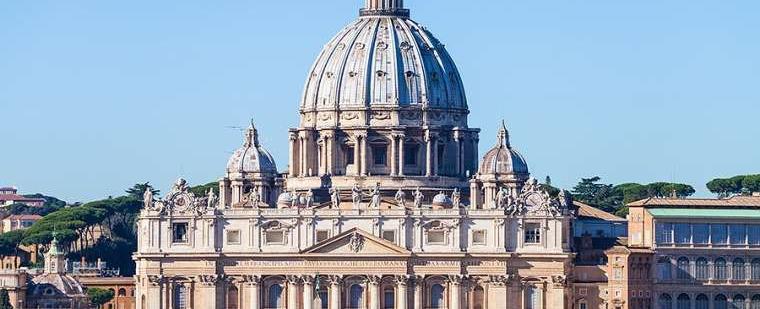Newman's Visit to Rome in 1833: Part I

What did John Henry Newman learn from his first journey to Rome in 1833, and how did it affect him? Did he experience what he later called an "enlargement of mind" during this visit to Rome? What did he learn from visiting the churches in the city of Rome and from conversing with its people? And, do we have anything to learn from his experience and thoughts during this journey? In other words, how significant was that journey for Newman himself and for those who are interested in his life and ideas especially of the Church and her unity?
Newman's first journey to Rome would become a significant event for his ecclesiology and ecumenical theology.[1] He first visited Rome in 1833 during his Mediterranean voyage (1832-1833), and obviously it brought him into direct contact with the concrete realities of the churches of Greece and Rome. Examining his letters written during this voyage, his poems, "Home Thoughts Abroad," and Richard Hurrell Froude's Remains provide a window into his ecclesial leanings at this time.
After departing from Rome, Newman wrote to his sister Jemima: "How shall I describe the sadness with which I left the tomb of the Apostles! Rome, not as a city, but as a scene of sacred history, has a part of my heart, and in going away I was tearing it as if in twain."[2] Then he marked out the highlights of his visit to Rome:
"I ought to tell you about the Miserere at Rome, which I heard twice, and about my going up St. Peter's, and the illumination of the Dome on Easter Day, and about our conversations with Dr. Wiseman head of the English College, and our talks with Mr. Bunsen, the Prussian Minister, and our search and finding of the Church of St. Thomas of Canterbury, and my pilgrimage to the place of St. Paul's martyrdom, and our going into the Catacombs and all our other many sights, which have stolen away of my heart, [but I forbear till (so be it) we meet]."[3]
Part 1. The Background to Newman's Visit to Rome
On 9 September 1832, Newman received a "very tempting" and "quite unsettled" invitation from Richard Hurrell Froude and his father, Robert Hurrell Froude to accompany them on a voyage to the Mediterranean.[4]Newman persuaded himself that it would be doubly beneficial; it would bring him into contact with many places mentioned in the Greek and Latin classics that he loved and taught, as well as give him the opportunity of following in the footsteps of St. Paul. Later, he came to see this trip as a means for benefiting his health, enlarging his usefulness, and increasing his influence.[5] On 8 December 1832, Newman and the Froudes sailed from England toward the Mediterranean on board the packet ship, Hermes.[6]
The combined tedium and excitement of the voyage spurred Newman not only to write long descriptive letters to his family and friends, but also to do "verse making." The themes of these verses were both spiritual and theological. While some of these poems reflected spiritual sentiments, such as love for the ancient church and her leaders, a pervasive awareness of sin and guilt, an honest fear of death and a sense of the embattled soul compassed by trials, others concerned the evil of private judgment.[7] As the journey progressed, he acquired new ideas and a sense of vocation to God and to the church.[8]
[1] There are a few essays already written about Newman's journey in the Mediterranean: John T. Ford. CSC, "Newman as Theological Tourist"; Martin Charcosset., "Newman's Memory of his Sicilian Sojourn"; and M. Katerine Tillman., "Realizing the Classical Authors: Newman's Epic Journey in the Mediterranean" all in Newman Studies Journal, 3 no. 2 (Fall 2006).
[2] Newman to Jemima Newman (Naples, 11 April 1832), LD, iii: (282-86) at 282.
[3]; Newman to Jemima Newman (Naples, 11 April 1832), 284.
[4] Richard Hurrell Froude (1803?1836) was Newman's Oriel College colleague and friend, and Richard's father, Robert Hurrell Froude (1771?1859) was the Archdeacon of Totness. See Ian Ker, John Henry Newman: A Biography (New York: Oxford University Press, 1988), 46; hereafter cited: Ker, Biography.
[5]; Ker, Biography, 56.
[6] Ker, Biography, 55.
[7] Newman to Jemima Newman (On board the Hermes, 12 Dec. 1832), LD, iii: 139; for example see the poem, "Private Judgment," which was later published with some slight variations in Verses on Various Occasions, 78-79.
[8] Sherdian Gilley, Newman and His Age (London: Darton, Longman and Todd, 1990), 92.
Fr. Joseph Elamparayil
Independent Scholar, Catholic University of America
Fr. Joseph Elamparayil is a graduate of The Catholic University of America. His dissertation is titled, "John Henry Newman's Lectures on the Prophetical Office of the Church: A Contextual History and Ecclesiological Analysis."
QUICK LINKS

